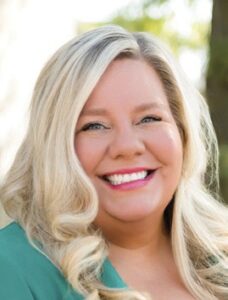At Clove Alliance, we have spent decades supporting survivors of sexual violence — listening to their stories, encouraging their healing, and advocating for a world where they are no longer silenced or ignored. But too often, we see a devastating pattern: The harm of sexual abuse is doubled by institutions that fail to protect, respond to, or believe survivors. Accusations in a recent lawsuit involving Paxton-Buckley-Loda schools illustrate what happens when those in power look the other way. According to court documents and survivor accounts, which were covered by the media, students continually reported inappropriate behavior from a teacher and coach for more than a decade. They say they spoke up, asked for help, and were silenced. Staff who reported their concerns to administrators say the same.
Schools, religious institutions, sports organizations and youth programs all have a moral and legal responsibility to protect children. That responsibility does not end when addressing abuse is inconvenient or threatens reputations. Yet, we see it time and time again.
Institutions ignore allegations, fail to report abuse to investigators and even cover up misconduct, actively adding to the harm. It sends a disturbing message to young people: Your safety is not a priority. Your voice does not matter.
The long-term impact of that betrayal cannot be overstated. We see survivors carry that pain for years, struggling with self-worth, trust, mental health and relationships. Some never speak up again. Others never seek help. The effects resonate in communities for a lifetime.
We cannot afford to allow abuse and inaction to slide.
So what can be done?
The path forward starts with education, accountability and a culture shift.
First, we must educate. Comprehensive sexual violence prevention programs — like the ones Clove Alliance delivers in schools across Kankakee, Iroquois and Ford counties — teach students about boundaries, consent, bystander intervention and how to seek help. These programs empower youth with knowledge and language that many of us didn’t have growing up. They are a vital line of defense against abuse.
Teachers, coaches, counselors and school administrators need to learn, too. Ongoing training helps them recognize the signs of abuse and understand their responsibility to respond appropriately — and what to do when leadership fails to act. They must know their obligations as mandated reporters and why taking a disclosure seriously saves lives.
Second, we must hold institutions accountable. Survivors should not have to speak up repeatedly, wait years or file lawsuits to be believed. Systems must be transparent, survivor-centered and rooted in justice, not self-preservation. Real accountability has to follow when they fail, and practices must be put in place to ensure the next generation is protected.
Finally, we have to push for a cultural shift. The cycle of abuse, silencing survivors, covering up misconduct and the public shock when perpetrators and institutions are exposed is a worn out record. How many times does it have to happen before we do things differently?
Let’s put our energy into shifting the culture toward compassion, prioritizing prevention, believing survivors, creating better safeguards for the most vulnerable, and truly holding people to account when harm occurs.
Join us in saying to the survivors coming forward now: We believe you. We are here for you.
And to the institutions entrusted with the care of young people: It’s time to do better. Believing survivors is not just the right thing to do — it’s the bare minimum.
Tracey Noe Slach is the executive director and chief executive officer of Clove Alliance, a rape crisis center which offers free, confidential counseling, advocacy and prevention education in Ford, Iroquois and Kankakee counties. To learn more or access support, visit clovealliance.org.


